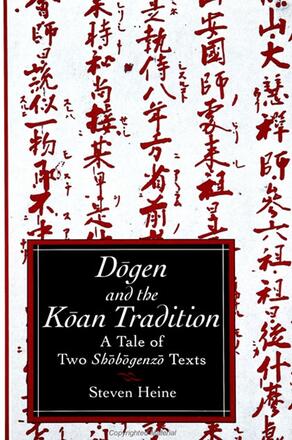
Dōgen and the Kōan Tradition
A Tale of Two Shōbōgenzō Texts
Alternative formats available from:
Description
This book has three major goals in critically examining the historical and philosophical relation between the writings of Dōgen and the Zen koan tradition. First, it introduces and evaluates recent Japanese scholarship concerning Dōgen's two Shōbōgenzō texts, the Japanese (Kana) collection of ninety-two fascicles on Buddhist topics and the Chinese (Mana) collection of three hundred koan cases also known as the Shōbōgenzō Sanbyakusoku. Second, it develops a new methodology for clarifying the development of the koan tradition and the relation between intellectual history and multifarious interpretations of koan cases based on postmodern literary criticism. Third, the book's emphasis on a literary critical methodology challenges the conventional reading of koans stressing the role of psychological impasse culminating in silence.
Steven Heine is Associate Professor of Religious Studies at Pennsylvania State University. He is author of Existential and Ontological Dimensions of Time in Heidegger and Dogen and editor of Masao Abe's A Study of Dogen: His Philosophy and Religion, both published by SUNY Press. He has also written A Blade of Grass: Japanese Poetry and Aesthetics in Dogen Zen and A Dream within a Dream: Studies in Japanese Thought.
Reviews
"It is at the very top of Dogen scholarship and one of the finest works written on the koan, elucidating the development from the original words of Chinese masters to Dogen's interpretation. It is also a comparative work that improves on conventional understanding and interpretation of the koans by introducing the author's own 'discourse analysis,' which use the subtleties of postmodernist thought to clarify the various aporetics of the koan. It is Japanese Buddhist scholarship at its finest. No student of Japanese thought and culture should be without this book. " — Kenneth Inada, State University of New York at Buffalo